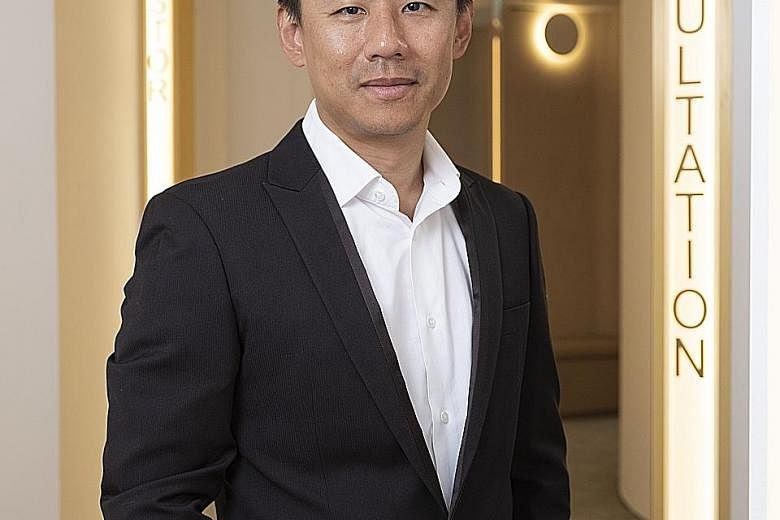Ms Julie Kuah was suffering from a urinary tract infection and needed to see a doctor.
But when she arrived at the clinic on April 23, she was told that the doctor would be able to attend to her only via tele-consultation, that is, through a video call.
With stringent circuit breaker measures implemented to combat Covid-19, doctors can attend to only acute illnesses at their clinics.
In a 10-minute WhatsApp video call with Dr Kevin Chua of Dr Kevin Chua Medical & Aesthetics, Ms Kuah was given a diagnosis of her condition and a prescription for her medication.
Ms Kuah, 68, who works as a manager in an insurance firm, told The Straits Times last week: "I think it's good to avoid any contact during this circuit breaker period. Older people and those who are sick will be more vulnerable. It's good to have telemedicine so we don't need to go to the clinic and expose ourselves."
At present, clinics can provide only essential services or necessary treatment without which a patient's condition would deteriorate rapidly or significantly.
A Ministry of Health spokesman told ST on April 19: "Where possible, services that are suitable for tele-consultation should be delivered remotely, including essential services."
Doctors providing tele-consultation services will have to attend a telemedicine e-training course and adhere to the National Telemedicine Guidelines in addition to the Singapore Medical Council's Ethical Code and Ethical Guidelines.
As of April 13, 955 medical practitioners and healthcare staff have completed the course.
There are 115 clinics approved to provide Community Health Assist Scheme-subsidised and Medisave-claimable video consultations.
Dr Diana Tan of Shenton Clinic, who completed the telemedicine course last month, said there was initially some confusion among doctors on what would be considered essential healthcare.
"I think as the days went by, we realised it's strictly acute cases, like signs of stroke or chest pain," said Dr Tan, a physician of more than 20 years.
Other acute illnesses include fever, cough and heart attack, added Dr Tan, who has had to turn away patients who came to do a regular medical check-up.
Dr Tan said she now sees about 20 patients a day as compared with 60 before the outbreak hit.
Dr Chua, who started tele-consultation in February, said he and his wife, Dr Iroshini Chua, see an average of 50 patients every day via tele-consultation.
He told ST that a few people know which clinics provide telemedicine.
Dr Chua, who charges $20 per tele-consultation for patients who register with his clinic, is also on the panel of Doctor Anywhere.
The on-demand video consultation platform that connects patients to doctors for medical consultations currently has 60 general practitioners from Singapore, of whom 60 per cent joined in the last three months.
One of the challenges doctors face in telemedicine is ensuring that medications are safely delivered to patients, said Dr Chua. While some doctors use third-party delivery service providers like Lalamove or Grab, he prefers to engage his clinic's dispatch rider.
Verifying the identity of the person who receives the medication is important, he said. There is risk involved in delivering certain cough syrups containing addictive substances like codeine.
Dr Mark Yap of Cashew Medical said he would still encourage his patients to send their family members to pick up their medications.
He said: "The delivery man will not be able to explain the medicine to you. What if the delivery is late and the clinic has already closed? There will be no one to explain the medicine to the patient. Or when the delivery man has to deliver medicines to two patients and gets the medicines mixed up?"
In telemedicine, doctors are responsible for the outcome and they need to set their own parameters, said Dr Yap.
"We are on a learning curve and we need to be mindful that errors can happen and it can happen in the delivery of medications," he added.
Correction note: The article has been edited to show the correct name of Ms Julie Kuah. We are sorry for the error.












